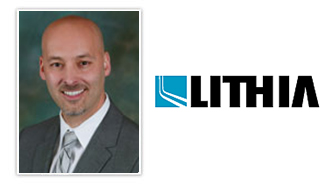Lithia Leadership Reiterates Value All Dealers Play in Financing Process

By subscribing, you agree to receive communications from Auto Remarketing and our partners in accordance with our Privacy Policy. We may share your information with select partners and sponsors who may contact you about their products and services. You may unsubscribe at any time.
MEDFORD, Ore. –
Three members of Lithia Motors' management team all voiced strong opinions about the Consumer Financial Protection Bureau's recent guidance on indirect auto lending and dealers' role in retail vehicle sales.
All three reiterated not only their own processes but how the dealer body as a whole works with lenders to originate loans to help buyers get into a vehicle that meets their needs and is within their budget.
When asked about the CFPB guidance during the company's quarterly conference call last week, Lithia senior vice president and chief financial officer Chris Holzshu said, "The first thing I want to talk about with the CFPB is you have to step back and say look at the fact that the majority of the vehicle sales in the U.S. are done by the dealer body.
"This is a complex transaction that involves a new- or used-vehicle sale," Holzshu continued. "There's a trade. There's the budgeting aspect to figure out what your payment is and what your term is and then all of the products we offer consumers, like prepaid maintenance plans, that go into that transaction.
"That's a complex set of variables that are going into every retail sale we have," he went on to say.
Soon after the CFPB released its guidance in March, agency director Richard Cordray reaffirmed the position the dealer has in a retail transaction, especially when financing is required to complete the deal.
Subscribe to Auto Remarketing to stay informed and stay ahead.
By subscribing, you agree to receive communications from Auto Remarketing and our partners in accordance with our Privacy Policy. We may share your information with select partners and sponsors who may contact you about their products and services. You may unsubscribe at any time.
"Dealers play an essential role for car buyers nationwide. They provide value, and they deserve fair compensation for their work," Cordray said.
That's a stance Holzshu takes, as well.
"The lenders see the value because they don't have a transaction without the help of the dealer," he said. "Whether you look forward and you talk about flats or reserve payments or you look at incentive-based compensation from our lenders, we feel like the amount of revenue we get in F&I from that transaction will be stable. It might just shift in how that compensation works over time."
Lithia management indicated it has an internal rate markup cap of 2.5 percent, but officials didn't disclose exactly how much of its F&I gross profit comes from dealer participation. The company generated $1,116 in F&I gross profit per retail sale during the first quarter, up 4.7 percent year-over-year.
Lithia founder, executive chairman and chairman of the board of directors Sid DeBoer discussed how that profit potential might change if the CFPB continues to ramp up regulations and lenders adjust compensation structure.
"If it does turn into a flat and the rate is dictated by the finance source, then I don't where that goes," DeBoer said. "I don't think finance sources are going to really like that. But if it goes there, I think the amount might be very similar to what we currently earn because we all have caps on that and they have caps on that, on what we can charge a customer."
DeBoer has held a variety of leadership roles with the National Automobile Dealers Association. He explained this week how he and NADA colleagues have worked feverishly on Capitol Hill and elsewhere in Washington, D.C., to explain to lawmakers and regulators exactly how the markup process works.
"We aren't the lender, and that's often misunderstood. They often think of it as that we're the fee generator, like we're more like a broker in the deal," DeBoer said. "In reality, we originate the loan. The loan is made between our store and the customer. We negotiate an interest rate.
"But we're originating loans. How do you regulate that? We have no data to indicate what race (the buyers) are," he went on to say. "We have the data relative to their credit score, but we have no other data. It's really a monster to try to get control of that. Obviously, that's why we were not included in (the CFPB's) realm of control."
However, DeBoer didn't discredit all of the CFPB intentions of its indirect auto loan guidance.
"I think the pressure is good to make sure dealers don't overcharge a customer," DeBoer said. "I think that's very valid. We've always been very much in control of that. We monitor it. We have criteria internally to look at what each customer is charged and the margin in it. I don't believe it's a big problem.
Lithia president and chief executive officer Bryan DeBoer closed the conference call dialogue about the CFPB by reiterating what he believes is a "transparent sales process," at group dealerships.
"Our people in the stores get it," Bryan DeBoer said. "If it becomes a flat rate or a reduced rate, we sell our product through sheer transparency and selling the cost benefits of those things.
"No matter what happens in this arena, it's going to turn out good for our consumers and good for ultimately our profitability," he continued. "When they walk out of our dealership and get 7 percent on their contract, they're not going to be able to walk down to their credit union or bank and get 5, 5.5 or 6. It's going to be in a relative realm to what their credit substantiates. I think that's the important thing to keep in mind."
Nick Zulovich can be reached at [email protected]. Continue the conversation with Auto Remarketing on both LinkedIn and Twitter.


